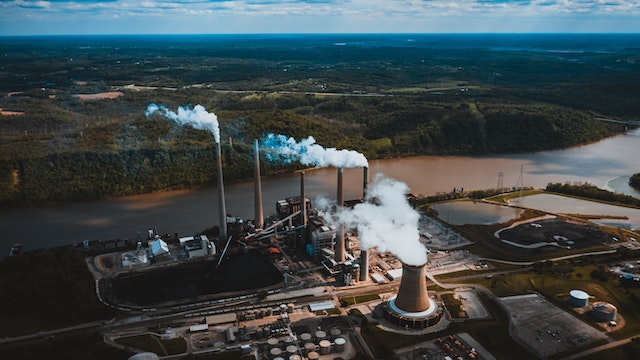Is Oil A Renewable Resources
Is oil a renewable resources? This is a hotly debated question that has been discussed in many circles, including political and economic.
The answer to this question is more complex than it may appear at first glance, as many factors are involved in determining whether oil can be classified as a renewable resource.
While the use of oil as a source of energy has brought about significant economic and technological advancements, the finite nature of its reserves has caused concern about its sustainability and impact on the environment.
This article will explore the pros and cons associated with oil being considered a renewable resource, as well as provide an overall conclusion on the topic, but first, we must answer these questions below to have a better understanding.
What is a renewable resource?
Renewable resources or alternative energy sources are natural materials or energy sources that can be replenished in a relatively short period of time. This means that renewable energy sources can be used again and again without the danger of them running out, unlike non-renewable resources such as oil which are finite and limited in supply.
What are the 7 types of renewable energy?
Solar Power
Wind Power
Geothermal Power
Biomass (organic material)
Hydropower
Tidal Power
Wave Power
Solar energy involves capturing the sun’s rays and converting them into electricity or heat.
Wind turbines use the wind’s kinetic energy to generate electricity and are becoming more common in rural areas across the world.
Geothermal plants use naturally occurring underground heat to produce electricity while biomass involves burning organic matter such as wood chips and animal waste to create power.
Hydropower makes use of flowing water in rivers or dams to generate electrical power, while tidal and wave power capture the ocean’s waves as an untapped source of clean energy.
Renewable energy is becoming increasingly popular as an alternative to non-renewable sources such as oil due to its sustainability and low environmental impact.
Furthermore, renewable energy production has been made easier by advances in technology which have resulted in more efficient methods for harnessing and storing it.
For example, solar panels can now collect more sunlight than ever before meaning more electricity can be generated from this source over time.
Is Nuclear Energy Renewable?
The debate as to whether nuclear energy is a renewable resource or not has been ongoing for decades. On the one hand, some argue that nuclear energy is an inexhaustible source of energy due to the fact that it requires uranium, which can be found in abundance all over the world.
But on the other hand, opponents suggest that because nuclear power plants produce dangerous by-products such as radioactive waste and toxic emissions, they are not truly renewable resources.
Proponents of nuclear energy believe that while it may produce radioactive waste and emissions, these issues can be mitigated through proper maintenance and disposal of this material in order to ensure safety.
Additionally, they maintain that due to its low carbon footprint when compared with other forms of power generation such as coal or gas, it should still be considered a viable option for addressing global climate change.
What is a non-renewable resource?

A non-renewable resource is a natural resource that cannot be replaced naturally or artificially once it has been consumed. This means that once a particular quantity of the resource has been used, it will not be available for future generations to use.
Examples of nonrenewable energy resources include fossil fuels such as coal, oil, and gas which are formed from prehistoric plant and animal remains that have over time been converted into these energy sources through heat and pressure.
These resources are finite in nature, meaning they are limited in supply and will eventually run out and this is why is oil non renewable.
Oil is one example of a non-renewable resource that is often used as an energy source due to its high efficiency when compared to other forms of power generation.
Is the oil renewable or nonrenewable?
Oil is one type of energy, but it is not a renewable resource, it remains a finite resource that is often used as an energy source due to its high efficiency when compared to other forms of power generation.
As the world grapples with climate change and oil prices continue to rise, renewable sources of energy have become increasingly important.
Why is oil considered renewable?
Oil, one of the nonrenewable resources has become a major source of energy in the past several decades and is used to power many industries. For this reason, it has been an important factor in global economic progress.
But, with concerns about environmental sustainability gaining more traction each year, the question of whether oil can be considered renewable or not has been raised.
As a non-renewable resource, oil – or petroleum – is formed over millions of years from the remains of living organisms such as marine animals and plants that died long ago.
This means that once all the existing reserves are extracted from the ground, there won’t be any left for future generations to use.
However, some argue that as long as new oil forms naturally over time and new technology advances allow us to access these resources again in safer ways than before then it should be classified as renewable.
What are the products of crude oil?

Crude oil is a non-renewable resource that is used to create many products in today’s society. From fuel for our cars to the plastics used to make everyday items, crude oil has become an essential part of modern life.
It can be refined into a variety of different products, ranging from gasoline and diesel fuel to lubricants and solvents. Additionally, it can also be transformed into petrochemicals such as polyethylene and polypropylene, which are widely used in the manufacturing industry.
The process of refining crude oil involves separating the various hydrocarbon molecules based on their boiling point range. This separation process produces light fuels such as gasoline, jet fuel, and kerosene, as well as heavier petroleum products like asphalt and lubricating oils.
Oil has been around since ancient times, but it was only in the 19th century that large-scale extraction of crude began. Since then humans have been burning through this non-renewable resource at an alarming rate – much faster than nature can replenish it.
Which Country Has The Most Oil?
The answer to the question of which country has the most oil is not a simple one, as it depends on a variety of factors. The Organization of Petroleum Exporting Countries (OPEC) and its members remain some of the world’s top producers and exporters of crude oil.
With over 80 percent of global reserves, OPEC’s 13 countries make up an estimated 44 percent or more of total global production annually. This includes Saudi Arabia, Iraq, Iran, Kuwait, and Venezuela among others.
However, when it comes to publicly reported reserves by country and other non-OPEC nations such as Russia and the United States are included in that figure.
It is then that Russia rises to the top with estimated resources at just under 80 billion barrels followed by Saudi Arabia with 267 billion barrels according to US Energy Information Administration (EIA).
What are the advantages of oil?
Oil has been an important energy source since the late 19th century. From powering transportation to providing electricity, it is clear that oil offers many benefits over other energy sources such as solar or wind power.
One of its main advantages is its high energy efficiency compared to other sources, which means more power can be generated from a smaller amount of fuel. Additionally, it produces fewer emissions than other fossil fuels like coal and natural gas when burned for energy production.
In addition to being efficient and clean-burning, oil also provides convenience in terms of storage and transportability.
What are the disadvantages of oil?

Oil, one of the world’s most sought-after resources, is a nonrenewable resource. The burning of oil releases pollutants into the environment has caused global climate change, and warming of the earth’s surface, and continues to cause damage to the environment.
Despite its many uses and benefits, there are disadvantages that come with oil use.
When burned for energy production, oil releases carbon dioxide and other chemical compounds such as sulfur dioxide into the atmosphere, they are known as greenhouse gas emissions and contribute to global warming.
High concentrations of these pollutants lead to air pollution which can cause respiratory problems in humans and animals alike. Additionally, it also contributes to global climate change by trapping heat in the atmosphere which leads to rising temperatures throughout the globe.
Further, during the extraction of oil deposits from deep underground reserves or off-shore drilling sites oil can be damaging to nearby ecosystems causing water pollution in our Oceans and seas due to oil spills or leaks occurring during this process.
What are heavy metals?
Heavy metals are a type of pollutant found naturally in the environment, but can also be released into the air and water through human activities. They come from many sources, including industrial processes and burning fossil fuels such as oil.
Heavy metals have been linked to numerous health problems in humans, including cancer, lung disease, and reproductive issues. Additionally, heavy metal contamination has been known to adversely affect ecosystems by killing off plant and animal species or disrupting normal biological processes.
Oil production is one of the leading causes of heavy metal pollution worldwide. During oil extraction processes, toxic chemicals can leach out of the ground or be released into the atmosphere through exhaust emissions.
These pollutants often find their way into rivers and oceans where they accumulate over time on land and sea surfaces alike.
In conclusion
It is clear that oil is not a renewable resource. As the industry continues to grow and the demand for oil increases, it is important to consider alternatives and reduce our dependence on this finite resource.
Furthermore, investing in renewable energy sources such as wind and solar would help secure a more sustainable future for generations to come. Ultimately, it is up to individuals and governments to take steps towards a greener future with smarter energy consumption habits and more efficient use of resources.
Recent Posts
Understanding Energy and Electricity: The Power For Progress
Energy and Electricity Energy and electricity are integral components of modern life, powering everything from homes and businesses to transportation and communication. Without them, the...
The Future of Wind Energy The future of wind energy is set to play a critical role in addressing global energy needs while combating climate change. As renewable energy sources like wind and...


